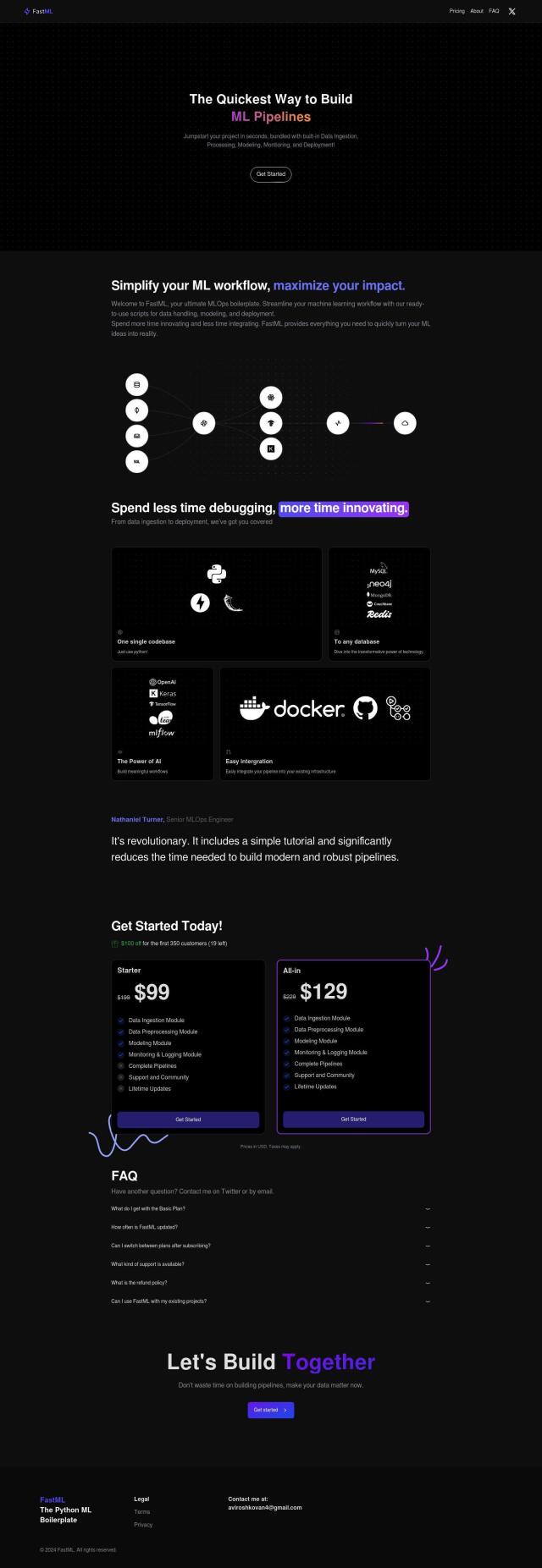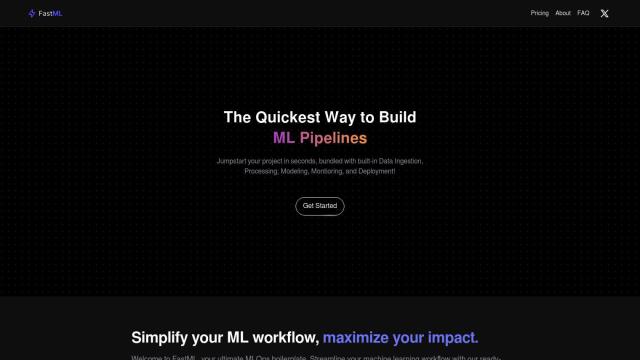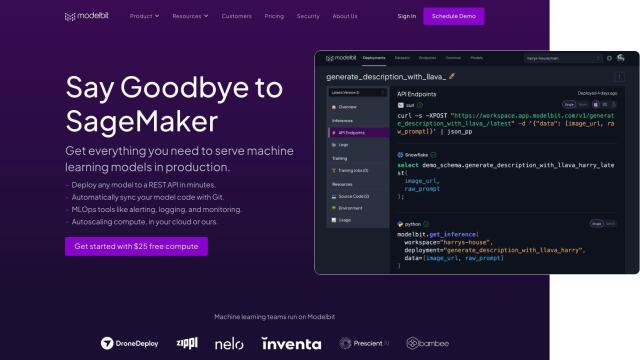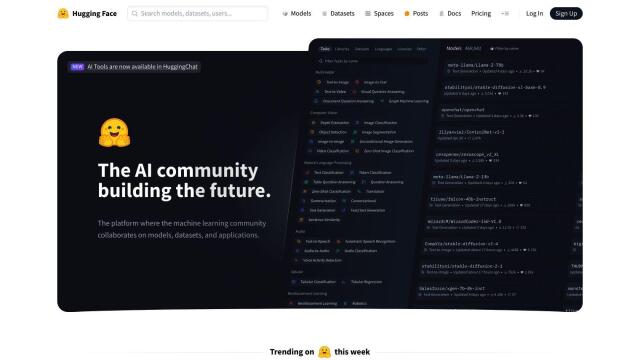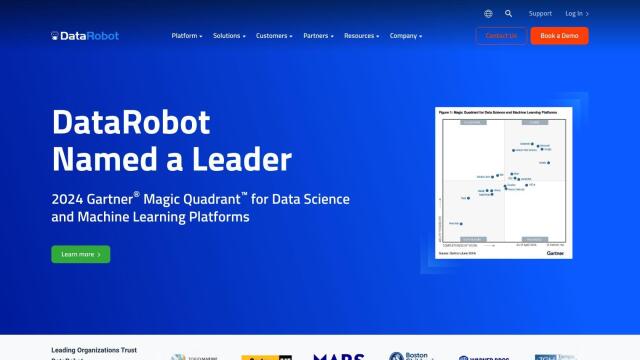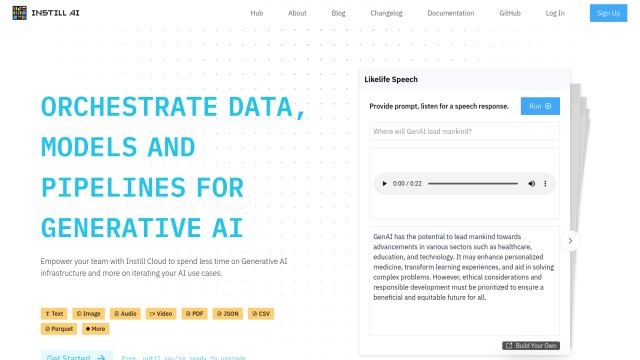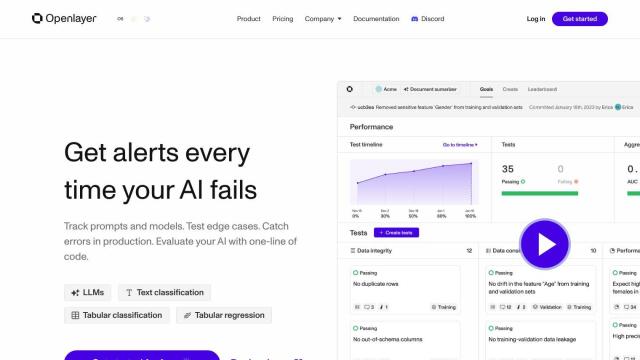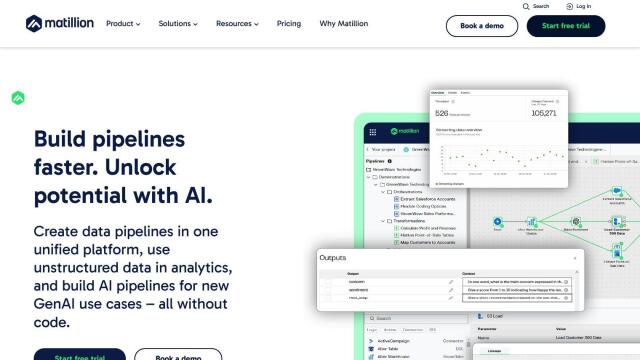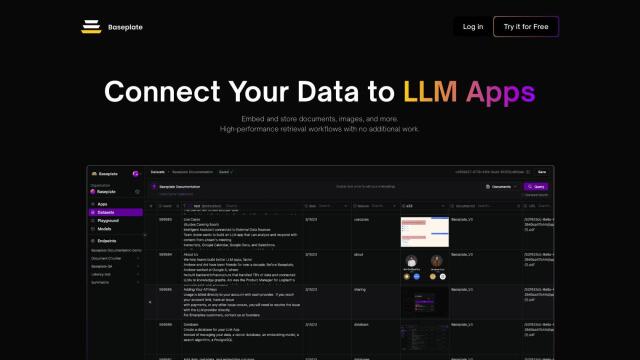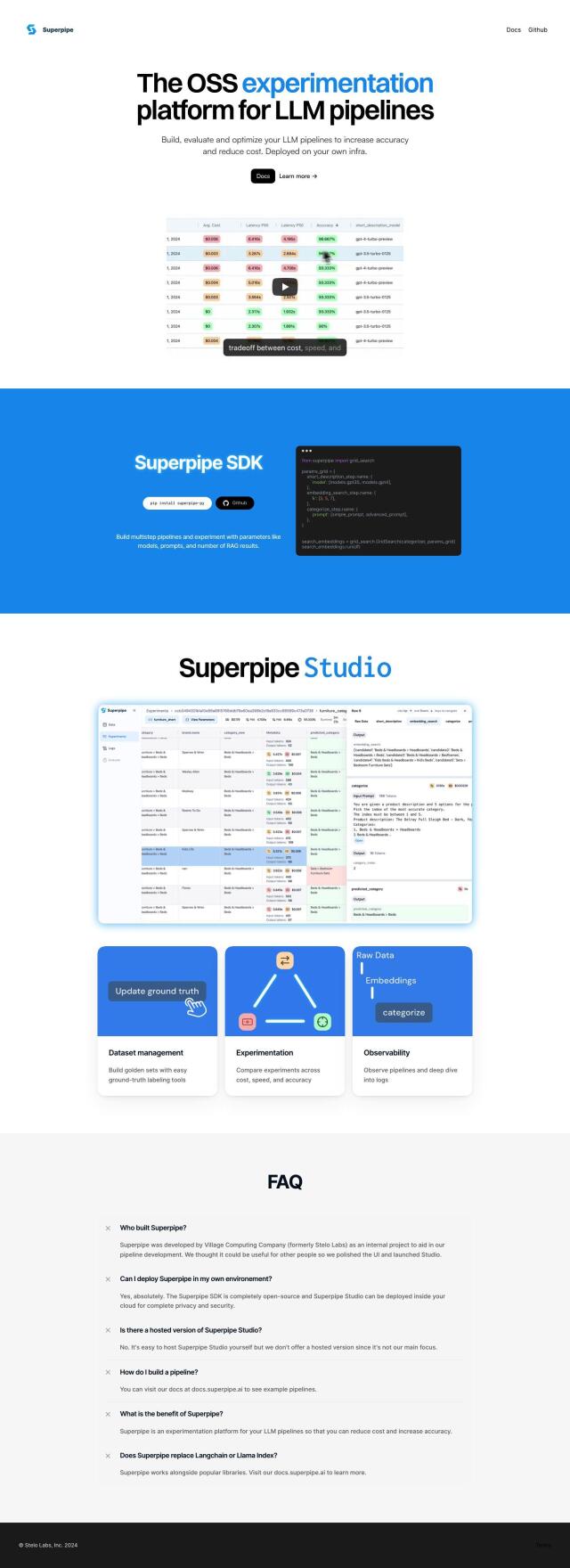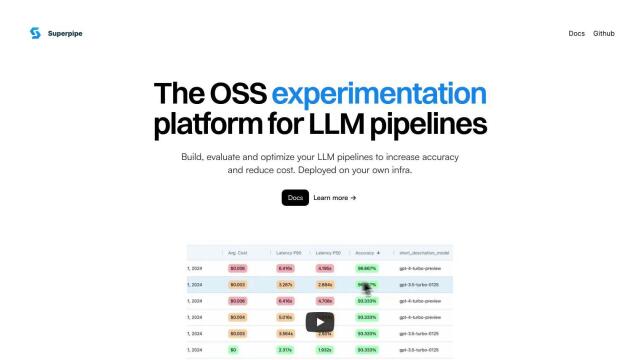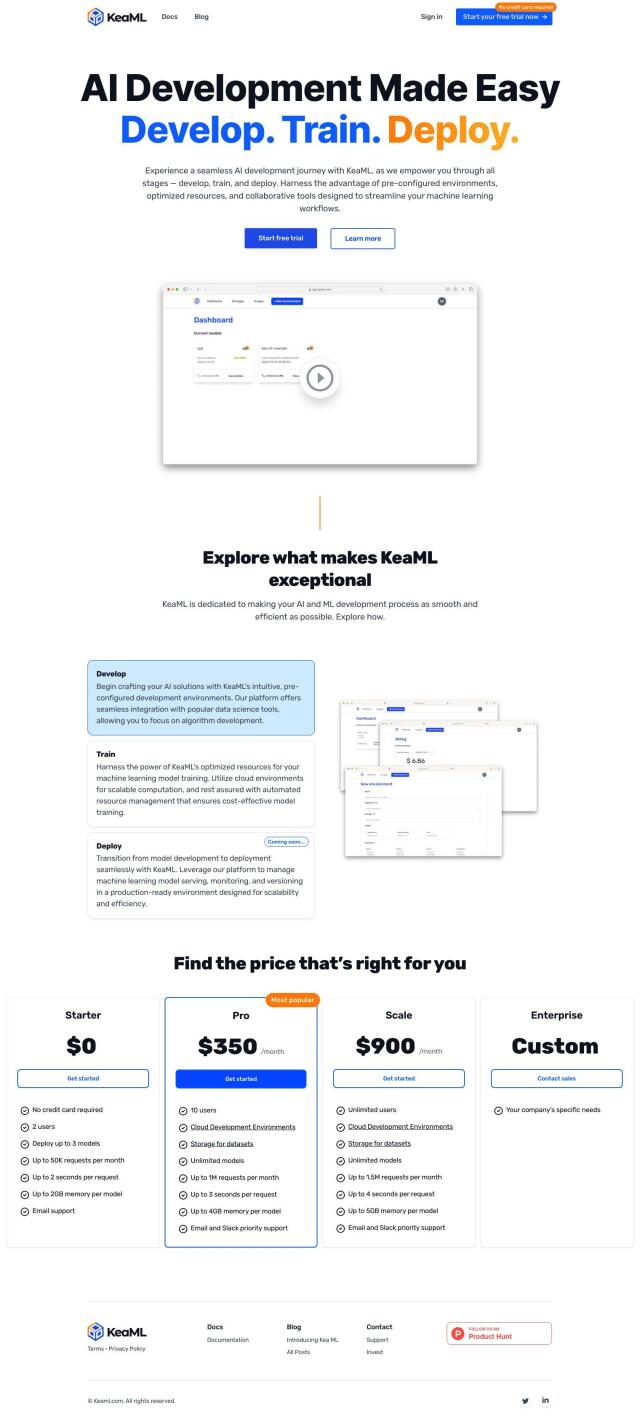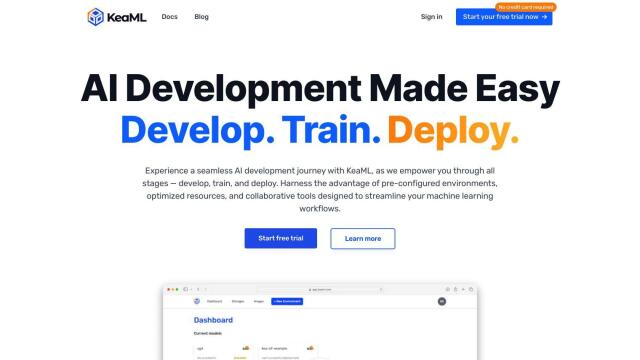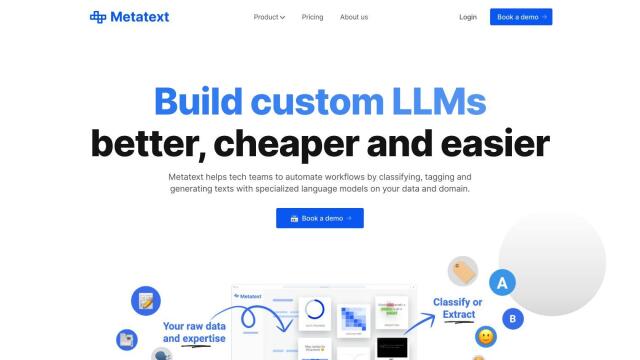
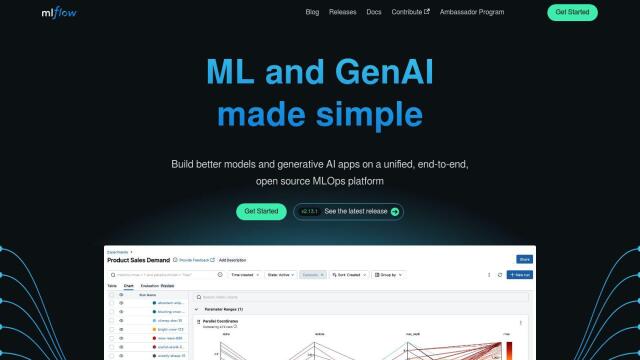
MLflow
If you're looking for a FastML alternative, MLflow is another good option. It's an open-source, end-to-end MLOps platform that helps you develop and deploy machine learning and generative AI models. MLflow offers a unified environment for the full ML project lifecycle, including experiment tracking, model management, and support for generative AI. It supports popular deep learning and traditional machine learning libraries like PyTorch, TensorFlow and scikit-learn, so it's a good option for machine learning developers and teams.


Dataloop
Another good option is Dataloop, which offers data curation, model management, pipeline orchestration and human-in-the-loop feedback to speed up the development of AI applications. It offers features like automated preprocessing, embeddings for similarity detection and a function-as-a-service option for custom operations. Dataloop supports a variety of unstructured data formats and is designed to help teams collaborate and work faster, with strong security controls that meet major standards.

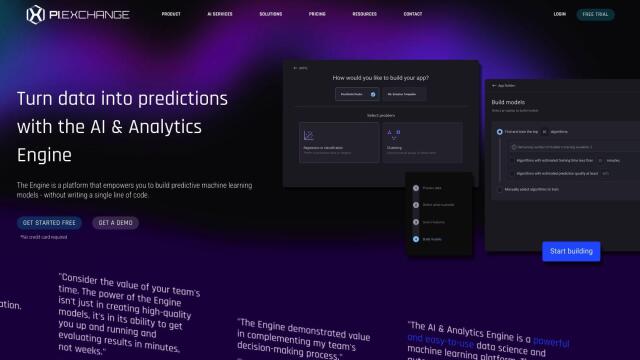
PI.EXCHANGE
PI.EXCHANGE is another option. It lets you create predictive machine learning models without writing any code, a good option for teams or individuals who don't have a lot of data science expertise. It offers an end-to-end ML pipeline for data prep, model training and deployment, and supports a range of machine learning problem types. Pricing tiers are available for different needs, so PI.EXCHANGE is a good option for a variety of business use cases.

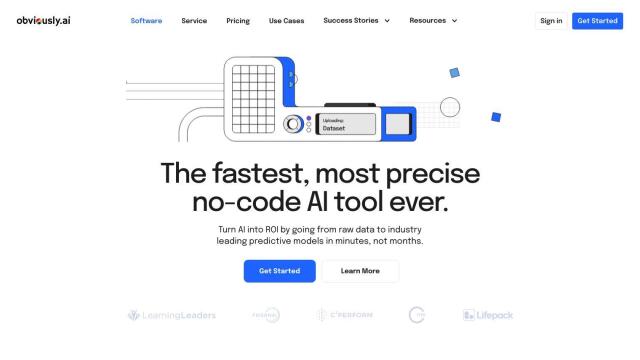
Obviously AI
If you want a no-code option, Obviously AI automates data science workflows so you can build and deploy machine learning models. It supports classification, regression and time series forecasting, and integrates with tools like Zapier, Airtable and Salesforce so you can easily integrate with your existing workflow. That makes it a good option for business analysts, sales and marketing operations people and data scientists trying to accelerate their data science work.
